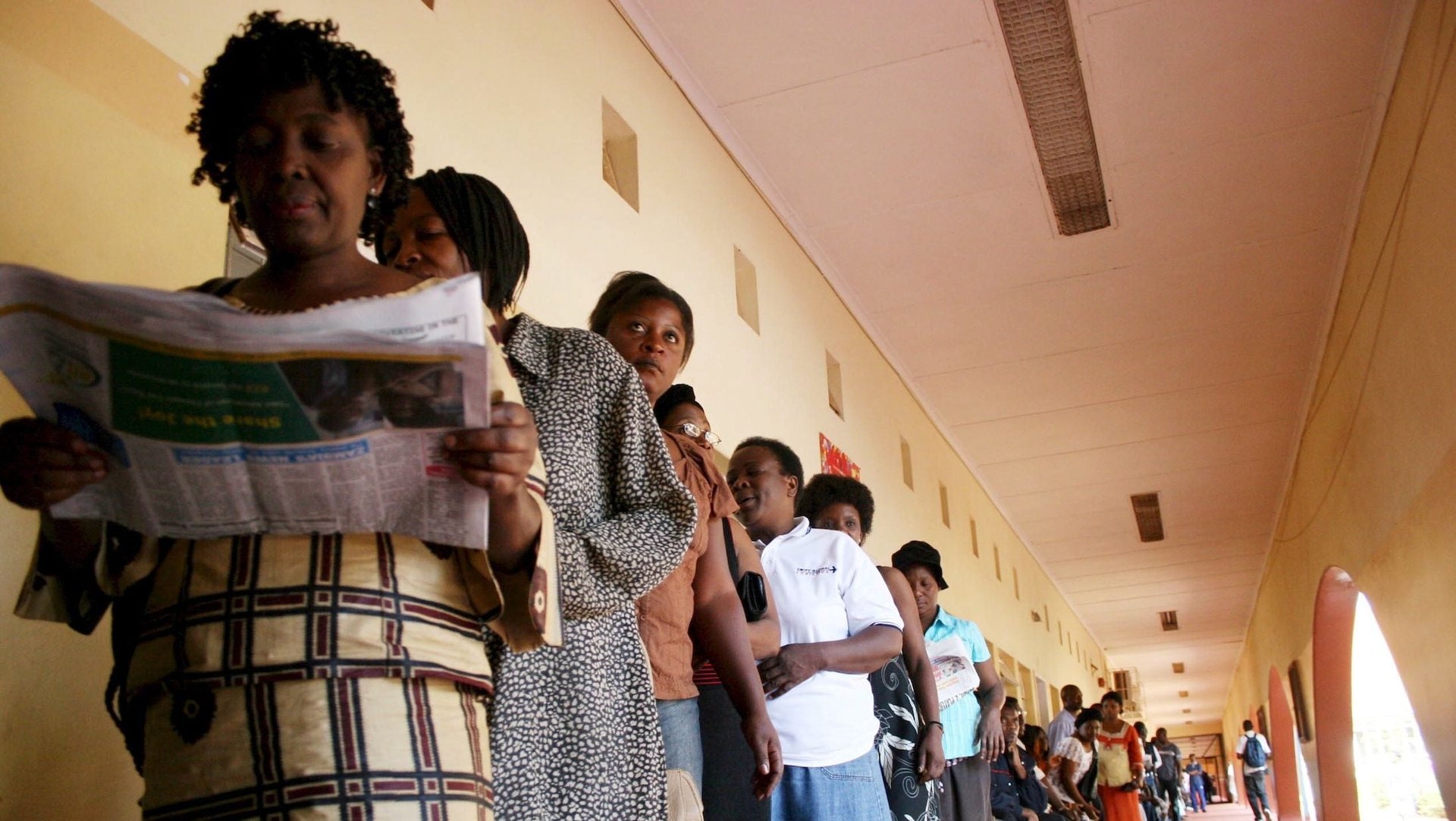Africans are outraged by this “white savior” memoir by an actress who spent a gap year in Zambia
When Louise Linton went to Zambia in 1999, at the age of 18, she found herself hiding from rebel soldiers, protecting an HIV-positive orphan girl, contracting malaria, and having close encounters with “lions, elephants, crocodiles, and snakes,” according to her recently published memoir, In Congo’s Shadow: One girl’s perilous journey to the heart of Africa. It was a gap year that turned into a nightmare, she recalls, as she quickly learned that “Africa is rife with hidden danger.”


When Louise Linton went to Zambia in 1999, at the age of 18, she found herself hiding from rebel soldiers, protecting an HIV-positive orphan girl, contracting malaria, and having close encounters with “lions, elephants, crocodiles, and snakes,” according to her recently published memoir, In Congo’s Shadow: One girl’s perilous journey to the heart of Africa. It was a gap year that turned into a nightmare, she recalls, as she quickly learned that “Africa is rife with hidden danger.”
The real nightmare may be the reception Linton is getting from Zambians and readers across the continent. Her book is being panned as a delusional, patronizing “jungle narrative,” riddled with inaccuracies and racist tropes. According to her critics, Linton—a Scottish actress and film producer whose resume includes CSI: New York and William and Kate, a Lifetime film about the British royal couple—is the latest reminder that the “white savior complex” is far from dead.
In her self-published memoir, Linton’s descriptions of her temporary home smack of the kind of exoticism and oversimplification that films such as Out of Africa were criticized for. Linton—young beautiful, and naive, she admits—describes wanting to help “some of the world’s poorest,” coming off as something of a real-life White Savior Barbie. She did not respond to a request from Quartz for comment.
Over the course of almost half a year this “skinny white muzungu” or foreigner “with long angel hair” is caught up in the fringes of war in the neighboring Democratic Republic of Congo:
Gunshots echoed through the bush and seemed to be getting closer. I couldn’t imagine the awful, sporadic acts of violence that were being committed as the village was ransacked. Fear and anger for the children consumed my thoughts… As the night ticked interminably by, I tried not to think what the rebels would do to the ‘skinny white muzungu with long angel hair’ if they found me. Clenching my jaw to stop my teeth chattering, I squeezed my eyes shut and reminded myself how I’d come to be a central character in this horror story.
Linton eventually escaped home to the safety of her family and castle in Scotland. In the end, she looks back at her time in Zambia fondly:
I know that the skinny white girl once so incongruous in Africa still lives on inside me. Even in this world where I’m supposed to belong, I still sometimes feel out of place. Whenever that happens, though, I try to remember a smiling gap-toothed child with HIV whose greatest joy was to sit on my lap and drink from a bottle of Coca-Cola. Zimba taught me many beautiful words but the one I like the most is Nsansa. Happiness.
Many have taken to social media to criticize the claims in her book. Under the hashtag #LintonLies, Zambians are calling Linton out on everything from describing the ”monsoon season” in a landlocked southern African country far from South Asia to writing about the “dense jungle canopy” when Zambia is made up of mostly wooded and grassland savannas. Others take issue with her account of machete-wielding child soldiers or that the conflict between Hutus and Tutsis, the basis of Rwanda’s 1990 civil war, ever spilled over into Zambia.
Even a spoof Twitter account for little Zimba has been created:
Some users have called on Zambia’s minister of information to demand an apology from Scotland. The Association of African Journalists and Writers have asked the Telegraph to retract Linton’s “false and stereotypical article of Zambia and Africa.” In response to the barrage of criticism, Linton has apologized for offending readers and appears to have blocked Twitter users that have taken to calling her “Savior with the angel hair.”
It seems the people Linton offended the most were the ones she hoped to help in the first place. The biggest grievance, according to readers from Zambia, is Linton’s misrepresentation of one the most stable countries on the continent. In fact, academics have tried to understand why peace persists in Zambia, which avoided civil war when as many as 20 other conflicts were engulfing the continent between 1990 and 2000, the period that Linton was there.
Today, Zambia is a hub for refugees and destination for foreign investment as Africa’s largest copper producer. It does struggle with poverty, however: 60% of the population lives below the poverty line and 42% are considered to be in extreme poverty.
One reviewer wrote on Amazon, ”Her real crime is she has tarnished the image of a very friendly people and a country that has a record of looking after refugees from most of [its] neighbors.”